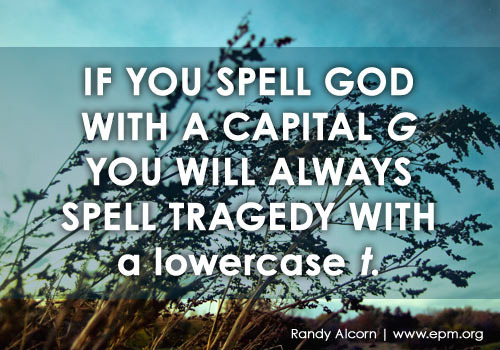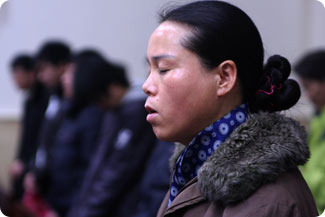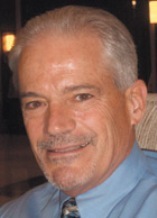Randy Alcorn's Blog, page 192
September 27, 2013
Crisis and Tragedy
A crisis is an immediate problem with very high stakes—and usually low control—that draws our total attention. It may be a terrible accident, the death of a loved one, a son in jail, a church scandal, a daughter who has run away. Some crises end well. The loved one recovers from the accident, the son turns to Christ, the daughter comes home. We may clearly see God’s hand in allowing the whole ordeal to happen.
 Other times crises end in apparent tragedy. Joseph’s brothers sold him into slavery and he became a prisoner in Egypt. But years later Joseph could say to his brothers, “You intended to harm me, but God intended it for good to accomplish what is now being done, the saving of many lives” (Genesis 50:20). The moral? If you spell God with a capital G you will always spell tragedy with a lowercase t. One day, in the presence of Christ, all who know Him will have the benefit of retrospect. We’ll be able to look back and see how all things really did work together for good!
Other times crises end in apparent tragedy. Joseph’s brothers sold him into slavery and he became a prisoner in Egypt. But years later Joseph could say to his brothers, “You intended to harm me, but God intended it for good to accomplish what is now being done, the saving of many lives” (Genesis 50:20). The moral? If you spell God with a capital G you will always spell tragedy with a lowercase t. One day, in the presence of Christ, all who know Him will have the benefit of retrospect. We’ll be able to look back and see how all things really did work together for good!
Few people in all of history have experienced the stress of Jeremiah. His book of Lamentations portrays a vivid and haunting picture of the destruction of Jerusalem and the suffering of her people. After sixty-four of the bleakest verses in God’s Word, describing the worst circumstances imaginable, Jeremiah states the obvious: “My soul is downcast within me” (Lamentations 3:20). But he follows with an amazing response that pulls himself and his reader out of the very depths of despair:
Yet this I call to mind and therefore I have hope:
Because of the Lord’s great love we are not consumed, for his compassions never fail.
They are new every morning; great is your faithfulness. (Lamentations 3:21–23)
Is this kind of perspective in the midst of tragedy restricted to people in Bible times? No! Many people today have exactly the same experience.
Joni Eareckson Tada’s diving accident at age 16 paralyzed her from the neck down. But if, in the decades since, you’ve read her books, seen her drawings, or heard her albums, then you know the beauty of Joni’s life. (Nanci and I know her personally, and she has had a great impact on us.) Joni has not just made the best of a bad situation; rather, she has flourished in what God knew for her was—we say this because she says it—the best situation.
Our friend Alice told us, “I’m in a wheelchair now, but God has given me a greater ministry than ever. I pray, I write letters of encouragement, I use the phone to share Christ’s love.”
You probably know a dozen other people in whose lives God has used tragedy to produce beauty. None of us seek tragedy or welcome it. But should apparent tragedy strike—or if it has already—we would be wise to let go of our limited perspective and let God prove to us that His promises are true: “…be content with what you have, because God has said, ‘Never will I leave you; never will I forsake you’” (Hebrews 13:5).
Perhaps you’re familiar with the background of the great hymn, “It Is Well with My Soul.” The songwriter had lost his wife and children at sea. The pain was great, but God’s grace rose to the occasion. Despite his heartbreak, the hymn writer could say without pretense, “It is well with my soul.” Only God can perform such a miracle of grace. And only we can stand in the way of His doing so.

Related Resources
Blog: “Look-at-ers” and “See-through-ers”: Having Perspective in a Fallen World
Article: Circumstances or Perspective?
Book: Help for Women Under Stress
background photo credit: jsnflo via sxc.hu
September 25, 2013
Does God purposefully hurt us through trials?
In this video interview with Julia Stager, EPM staff member, we discuss the question, “Does God purposefully hurt us through trials?”
 Julia: What would you say to someone who’s experiencing hard things, some sort of trial, and they believe that God put these things purposefully in their life just to hurt them?
Julia: What would you say to someone who’s experiencing hard things, some sort of trial, and they believe that God put these things purposefully in their life just to hurt them?
Randy: I would say God doesn’t do that. Now what’s interesting is, I’m not saying God doesn’t bring hard things to us. But interpreting those hard things that a sovereign God allows or brings into our lives as proof that God is being cruel to us is inappropriate. I hear this a lot. I heard someone just the other day say exactly those same things you just mentioned.
What I would say is, go to what Jesus said: “Which one of you, if his son asks him for bread, will give him a stone? Or if he asks for a fish, will give him a serpent? If you then, who are evil, know how to give good gifts to your children, how much more will your Father who is in heaven give good things to those who ask him!” (Matthew 7:9-11).
God is saying, don’t act as if you’re better than God is. God is the Father who loves His children so much that He went to the cross to shed His blood for them.
Julia: It’s so hard sometimes to see or believe that God is going to bring some good out of these hard things we’re going through.
Randy: Exactly. When the hard things come upon us, we tend to use them as a way of saying, “This is so bad, that if God really is in charge and He sent this to me—or even just allowed this to come into my life—He’s being cruel to me.” The logic goes, If I were all-powerful and all-wise, I would not do such a thing to my child. For me to do that would be cruel. And we say that. We reason that for a parent to put a child through misery, unless that misery is intended to save his/her life (which is sometimes the case), then we would say that would be cruel and wrong.
But what we don’t get is that God is at work in us doing good things through the terrible things that we are experiencing. It’s not cruelty. That’s where faith and trust come in. We need to trust that God knows better than we do, and that He will bring ultimate good, even after the most difficult things that we have to deal with.

Related Resources
Blog: The Best and the Worst
Video: Why is there suffering in the world today?
Booklet: If God Is Good... Why Do We Hurt?
September 23, 2013
Sexual Purity: 16 Things You Need to Know
 I’ve developed the following material and presented it to many young people and their parents over many years. When my now married daughters were teenagers, I honed it further for sharing and discussion with them and the young men who asked to date them.
I’ve developed the following material and presented it to many young people and their parents over many years. When my now married daughters were teenagers, I honed it further for sharing and discussion with them and the young men who asked to date them.
What follows is an abridged version of the longer material, “Guidelines for Sexual Purity.”
1. Sex is good. God created it, God called it “good,” and it existed before there was any sin in the world.
Sex was not created by Satan, Playboy, the Internet, or some pervert lurking in the shadows of a porn shop. However, God requires us to address sex within his intentions and requirements, not the world’s (Ephesians 5:3-4). God designed sex for the sacred union of marriage between a man and a woman, and reserves it for that union.
 2. Like all good gifts from God, sex can be misused and perverted.
2. Like all good gifts from God, sex can be misused and perverted.
Water is a gift of God, without which we couldn’t survive. But floods and tidal waves are water out of control, and the effects are devastating. Likewise, God designed sex to exist within certain boundaries. When exercised in line with God’s intended purpose, it is beautiful and constructive. When out of control, violating God’s intended purpose, it becomes ugly and destructive.
3. The boundaries of sex are the boundaries of marriage.
Sexual union is intended as an expression of a lifelong commitment, a symbol of the spiritual union that exists only within the unconditional commitment of marriage. Apart from marriage, the lasting commitment is absent and the sex act becomes a false expression, a lie. Sex does not become permissible through subjective feelings, but through the objective lifelong commitment of marriage.
4. Your sexual purity is essential to your walk with God.
Sexual purity is not an option for an obedient Christian; it’s a requirement. God’s will is centered on our character and moral purity much more than on our circumstances, such as job and schooling: “It is God’s will that you should be sanctified: that you should avoid sexual immorality” (1 Thessalonians 4:3).
5. You are vulnerable to sexual immorality.
Don’t kid yourself that it can never happen to you—it can. “So, if you think you are standing firm, be careful that you don’t fall!” (1 Corinthians 10:12). If you think you’ll never fall sexually, you’ll fail to take precautions to keep it from happening.
6. You are targeted for sexual immorality.
The more involved you are in serving Christ, the greater vested interests Satan has in destroying you and God’s work in and through you. The evil one wants to take you down and to use your life as a bad example to other Christians. God requires that we be holy and pure instruments to be used by Him (2 Timothy 2:20-21). But as powerful as the evil one is to tempt us, God is infinitely more powerful to deliver us and has given us in Christ all the resources we need to live godly lives (2 Peter 1:3-4).
7. Your body belongs to God, not you.
“You are not your own; you were bought at a price. Therefore honor God with your body” (I Corinthians 6:20). When you came to Christ, when you affirmed Him as Lord of your life, you surrendered your entire self, including your body, to God. He paid the ultimate price for it: the shed blood of God Almighty!
 8. Sexual purity begins in the mind, not the body.
8. Sexual purity begins in the mind, not the body.
“Above all else, guard your heart [mind, inner being], for it is the wellspring of life” (Proverbs 4:23). Be careful what you expose your mind to. If you’re on a diet, don’t go to Baskin & Robin’s. If you do, your resistance will break down. If you want to abstain from lust, you don’t go places and watch movies and programs and read things that stimulate lust. Don’t give your mind junk food. Be sure you’re getting spiritual nutrition.
9. Since God doesn’t want you to have premarital sex, neither does He want you to do that which prepares your body for premarital sex.
There is a continuum of physical contact that begins with things like sitting close and hand-holding on the near side and moves to sexual intercourse on the far side. Scripture does not spell out exactly what “intermediate” behavior is permissible, but one thing is certain—the line must be drawn before either of you becomes sexually stimulated.
10. Once you let your body cross the line, it will neither know nor care about your Christian convictions.
Some Christians pray God will protect their purity, then willfully put themselves into temptation and wonder why God didn’t answer their prayer. No matter how fervently you pray that you will not fall into immorality, you will fall if you continue to make choices that feed your temptation toward immorality. Don’t allow your choices to undermine and invalidate your prayers.
11. If you have sexual intimacy with someone outside marriage, you are stealing from God and the other person.
Since he or she belongs to God, not you, that means you are borrowing this person for the evening. Be careful what you do with what doesn’t belong to you. You’ll be held accountable to his or her Owner.
12. God has your best interests in mind when He tells you not to have premarital sex.
Sex is not just something you do—sex is someone you are. It is linked to the welfare of your whole person. Having sex outside of marriage is self-destructive in every sense. Sexual purity is always for the best—not only for God and others, but for you.
13. God would not tell you to abstain from impurity if it was impossible to obey him.
Sex is something everyone can abstain from—it is a strong desire, yes, but never an emergency, never a necessity. “The grace of God teaches us to say ‘No’ to ungodliness and worldly passions, and to live self-controlled, upright and godly lives in this present age” (Titus 2:12). You can and should draw upon your resources in Christ, and say “no” to temptations to sin.
14. Satan will lie to you about sex, but Jesus tells you the truth.
Jesus said of Satan, “When he lies, he speaks his native language, for he is a liar and the father of lies” (John 8:44). Satan is a liar, but Jesus is the truth and the truth-teller (John 14:6). He said, “If you hold to my teaching, you are really my disciples. Then you will know the truth and the truth will set you free” (John 8:32). Those who believe Satan’s lies about sex end up in bondage. Those who believe Christ’s truth about sex end up free.
 15. You must learn to think long term, not short term.
15. You must learn to think long term, not short term.
Good or bad, you will always reap what you sow—you will always harvest the consequences of your choices. “Do not be deceived: God cannot be mocked. A man reaps what he sows” (Galatians 6:7). The lifelong consequences of sexual impurity are worse than we can imagine. The lifelong rewards of sexual purity are greater than we can imagine.
16. If you’ve violated some of these guidelines, confess, repent and implement a plan to prevent future violations.
When you confess and repent of your sins, God will cleanse you:
"As far as the east is from the west, so far has he removed our transgressions from us” (Psalm 103:12).
"If we confess our sins, he is faithful and just and will forgive us our sins and purify us from all unrighteousness” (1 John 1:9).
Even if you are no longer a virgin you can and should commit yourself to secondary virginity—to remain sexually pure from this day forward, preserving yourself only for your marriage partner, should God choose to give you one. You need more than good intentions to maintain your purity—you need a plan. If you are committed to a relationship with a growing Christian discuss it honestly and formulate a plan to prevent falling back into premarital intimacy.
Live in such a way as to hear your Lord say to you one day, “Well done.” Get on the right side of the universe’s moral system. Honor God by living in sexual purity. If you do, you’ll experience His blessing and rewards not only today, tomorrow, and ten years from now, but throughout eternity.

Related Resources
Blog: How Should a Christian Guy Pursue a Relationship with a Christian Girl?
Article: Sexual Temptation: Three Critical Facts Every Christian Needs to Know
Booklet: Sexual Temptation: Establishing Guardrails and Winning the Battle
photo credits: wedding rings - rovaro via sxc.hu | tidal waves - saavem via sxc.hu | donuts - pixaio via sxc.hu | wheat: Odyar via sxc.hu
September 20, 2013
The Uncomfortable Truth: the Humanity of the Unborn

Pro-choice advocates once commonly stated, “It’s uncertain when human life begins; that’s a religious question that cannot be answered by science.” Most have abandoned this position because it’s contradicted by decades of scientific evidence. However, acknowledging the humanity of the unborn does require them to shift their language and tactics when defending abortion.
In the updated and expanded edition of my book Why ProLife?, I encourage readers to consider carefully these words written by a father (who is a pro-abortion ethicist) concerning his son:
On the desk in my office . . . there are several pictures of my son, Eli. In one, he is gleefully dancing on the sand along the Gulf of Mexico, the cool ocean breeze wreaking havoc with his wispy hair. In the second, he is tentatively seated in the grass in his grandparents’ backyard, still working to master the feat of sitting up on his own. In a third, he is only a few weeks old, clinging firmly to the arms that are holding him and still wearing the tiny hat for preserving body heat that he wore home from the hospital. Through all these remarkable changes that these pictures preserve, he remains unmistakably the same little boy.
In the top drawer of my desk, I keep another picture of Eli. This picture was taken on September 7, 1993, 24 weeks before he was born. The sonogram image is murky, but it reveals clearly enough a small head tilted backward slightly, and an arm raised up and bent, with the hand pointing back toward the face and the thumb extended out toward the mouth. There is no doubt in my mind that this picture, too, shows the same little boy at a very early stage in his physical development. And there is no question that the position I defend in this book entails that it would have been morally permissible to end his life at this point. [i]
On this same subject, Albert Mohler shares how pro-choice advocates, while acknowledging that the unborn are human, still defend the right for children to be killed by abortion:
So What if Abortion Ends a Life? Rare Candor from the Culture of Death
By Albert Mohler
Is an unborn baby “a life worth sacrificing?” The question is horrifying, but the argument was all too real. In a recent article, Mary Elizabeth Williams of Salon.com conceded what the pro-life movement has contended all along — that from the moment of conception the unborn child is undeniably a human life. And yet, Williams argues that this unborn human life must be terminated if a woman desires an abortion. The child is a life, but, in her grotesque view, “a life worth sacrificing.”

Related Resources
Blog: Questions for Our Pro-Abortion Friends, Church Leaders, and Politicians
Article: Is the Unborn Part of the Mother's Body?
Book: Why ProLife?
photo credit: foshydog via photopin cc
[i] David Boonin, A Defense of Abortion (New York: Cambridge University Press, 2002)
September 18, 2013
Fulfilled Hope
Hope deferred makes the heart sick, but a longing fulfilled is a tree of life. —Proverbs 13:12Never be lacking in zeal, but keep your spiritual fervor, serving the Lord. Be joyful in hope, patient in affliction, faithful in prayer. —Romans 12:11–12
May the God of hope fill you with all joy and peace as you trust in him, so that you may overflow with hope by the power of the Holy Spirit. —Romans 15:13
Hope is a much stronger word in the Bible than it is for most of us today. The hope of deliverance and resurrection is based solidly on the promise of an almighty truth-telling, covenant-keeping God who never fails and is never thwarted, who always keeps his promises. Whenever we hope for what God has promised, we don’t wish for a possibility; we anticipate a certainty.
Researchers conducted a study on stress with Israeli soldiers. They assured one group that the march would end at a certain point but kept the other group in the dark. Although both groups marched an identical distance, those who didn’t know how long they would march registered a much higher level of stress. Why? Because they had no hope, no tangible assurance that the forced march would end. They felt helpless, wondering when, or if, they could ever rest.
 Hope points to the light at the end of life’s tunnel. It not only makes the tunnel endurable, it fills the heart with anticipation of what’s at the other end: a world alive, fresh, beautiful, and without pain, suffering, or war. A world without disease, without accident, without tragedy. A world without dictators or madmen. A world ruled by the only One worthy of ruling (see Revelation 5:12). Though we don’t know exactly when, we do know for sure that either by our deaths or by Christ’s return, our suffering will end. From before the beginning, God drew the line in eternity’s sand to say for his children, “This much and no more, then endless joy.”
Hope points to the light at the end of life’s tunnel. It not only makes the tunnel endurable, it fills the heart with anticipation of what’s at the other end: a world alive, fresh, beautiful, and without pain, suffering, or war. A world without disease, without accident, without tragedy. A world without dictators or madmen. A world ruled by the only One worthy of ruling (see Revelation 5:12). Though we don’t know exactly when, we do know for sure that either by our deaths or by Christ’s return, our suffering will end. From before the beginning, God drew the line in eternity’s sand to say for his children, “This much and no more, then endless joy.”
Suffering is God’s invitation to look to Jesus and look forward to Heaven. The answer to the problem of evil is a person and a place. Jesus is the person. Heaven is the place. No one else and nowhere else will satisfy.
I spent three hours with Carol King, a godly woman in her fifties who was dying of cancer. She’d read a few of my books and wanted to talk about Heaven. What struck me that day was the gift of laughter.
“I need some new clothes,” Carol said, “but why buy them? I used to get jumbo-sized shampoo, but now it’s a waste. I don’t even buy green bananas, because by the time they ripen I’ll probably be gone!” Carol said it not morbidly but with heartfelt peace. She anticipated a better world. Carol had already suffered great pain and had no romantic notions about death. But she faced death with quiet joy and contagious laughter.
I left, encouraged by a dying woman I’ll always consider my friend. She went to her Savior soon after. I look forward to laughing with Carol in the world where Jesus promised those now weeping, “You will laugh” (Luke 6:21).
My anticipation, by the way, is not wishful thinking. Since God is the Almighty promise keeper who never lies and knows the end from the beginning, I am looking forward to a certainty.
Lord, remind us that our calling is not to wish for the best but to trust the utter faithfulness of an all-powerful, promise-keeping God who always has a purpose and a plan, who ordained from eternity past every moment of time and all the ages yet to unfold. As your magnificent story of redemption moves to culmination, thank you not only for writing the chapters yet to come but for also revealing some of their content, enough that we may know the solid certainty of a New Heaven and New Earth over which the risen Christ will reign, with your resurrected children beside you, worshiping and serving you in a world forever free of curse and suffering and death. Thank you for this promise—not merely my wish but a blood-bought certainty.

Related Resources
Blog: Six Eternal Truths to Remember Each Day
Article: The Gift of Hope
Book: 90 Days of God's Goodness
photo credit: Matthew Fang via photopin cc
September 16, 2013
How do you help non-believers see their need for Jesus?
In this video interview with EPM staffer Julia Stager, we discuss how we can help people see their need for Christ:
Julia:
I’m in my 20s, and I have a lot of friends in their 20s. Sometimes I don’t know how to help my friends who are unbelievers see their need for Jesus. They’re so busy doing so many things, and think that they’re living a good life. How do you help an unbeliever see their need for Jesus?
Randy:
 That’s a great question. I think there’s a couple of different strategies. Everything that we do must, at some point, reach the point of dealing with the sin issue—the separation from God. However, I think there’s a way to get to it through the perception that each person has intuitively: there is something more to life that they’re missing out on.
That’s a great question. I think there’s a couple of different strategies. Everything that we do must, at some point, reach the point of dealing with the sin issue—the separation from God. However, I think there’s a way to get to it through the perception that each person has intuitively: there is something more to life that they’re missing out on.
That emptiness is in every person. They have a sense that, like Pascal said, “All men seek happiness.” It is so true. People are seeking happiness. And most people, if they’re honest, realize the things they’ve done in life, in an attempt to fulfill themselves and be happy, have really not worked very well. Some things have worked better than others, but nothing has brought them the kind of fulfillment, peace, happiness, joy, and pleasure in life that they really want. It eludes them.
I think you can help people see that by asking them, “Has your life lived up to what you expected or what you wanted or what you dreamed of or what you hoped for?” The older someone is, the more they will realize, “No. It hasn’t.” But even a lot of young people, including teenagers and certainly people in their 20s, have already had a lot of disappointments. I think that can help them realize something is missing.
Julia:
I heard this quote the other day: “Atheists don’t believe in God, but God doesn’t believe in atheists.” That clicked with me. Basically what that person meant was that God knows the heart of the atheist and that even if somebody outwardly denies they believe in God, there is still the sense that you hear about in Romans—that God has revealed Himself in creation and through our conscience. As human beings we know there’s something more. Just like you were saying, I think if as believers we can tap into that void, then we can really get somewhere with the gospel.
Randy:
Paul says in Romans 2 that the Law is on our conscience. The conscience is a law in itself, in a sense. The standards of God are there. So, every unbeliever knows not only that there is something missing, but also they have a sense of guilt. They have a sense that, “I really have thought and done some very bad things.” Now our culture tries to minimize that in people. But God is still speaking to the heart.
Then we take can people from the “what I’m missing” to “what I’m guilty of” and look at the law of God. Look at the commandment to not commit adultery. “Have you ever committed adultery in your heart? Oh, you haven’t? Really? So you’ve never lusted after, or never thought of some person who may well be a married person? You’ve never looked at someone and mentally undressed them, and envisioned yourself going to bed with them or something like that?” That’s not being a good person. That’s evil.
What about killing somebody? Most people have not killed somebody physically. But have they had such hatred towards somebody in their hearts that they would like to see them dead? Well, that’s sin.
If we can help people first see the emptiness and the need, that’s a start. Sometimes it doesn’t have to be first. Sometimes they just need to see what they’re guilty of, not only in the sight of God, but really in their own conscience.
I think we need to help people tie into the sense of guilt inside and say to them, “You know, our culture says, ‘Never feel guilty.’ God says, ‘No. Feel guilty. There’s false guilt, of course. But feel true guilt. Then I will remove your guilt if you turn to Me in faith and repent of your sins. Then you will be guilt-free. Not guilt-free because you never did anything wrong, but because your sins have been forgiven in Christ.’”

Related Resources
Blog: All Men Seek Happiness
Article: Just Asking... Evangelism and Discipleship Tips
Store: Heaven booklets
photo credit: sbyellow via sxc.hu
September 13, 2013
Randy’s novel Safely Home and Opening Our Eyes to the Reality of the Persecuted Church

When Randy wrote Safely Home, no one knew how readers would respond—especially considering the topics of persecution and martyrdom that the novel deals with are anything but light and superficial. Randy’s goal, he explains, was to tell a compelling story which fueled the reader’s imagination, and also served the purpose of Proverbs 31:8-9, speaking up for those who cannot speak for themselves.
But since the book’s publication, our ministry has been blessed by the many positive responses from readers sharing how the story has impacted their lives. Here’s just one:
I must tell you that your book Safely Home is one of my all-time favorites. It is one of those books that seems to knock your world off kilter, then you come to the realization that it was just knocked straight. Understanding what persecution really means to the persecuted—and what kind of lives we should be living—this is huge! —W.D.L.
We believe the novel plays an important role in educating believers and Christian leaders about the reality of the persecuted church—which is often no easy task, says Tami Yeager, EPM’s bookkeeper and also an area coordinator for Voice of The Martyrs (VOM).
“I’ve noticed from my work with VOM that often people would rather hear about anything other than persecution,” Tami observed. “This is true in many churches as well. Barna Research group has some interesting information on this. Their statistics show the following—52 percent of American pastors don’t want to talk about persecution and have no plans to do so, while 74 percent of churchgoers do want to hear about the persecuted church.”
Writing in response to the new statistics, Dr. Carl Moeller, president of Open Doors USA, says, “The Barna poll found that while pastors know about Christians around the world who suffer because of their faith, a number of them believe the message of the persecuted church is not one their congregation wants to hear.”
 He continues, “In my stops for Open Doors throughout the United States, however, I've found the opposite to be true. Audiences' response to the message of the persecuted church has been very positive. Christians want to know what's going on with their brothers and sisters around the world. They're hungry for more information. Far from depressing, the narratives of the persecuted hold amazing courage, boldness, strength and perseverance amid difficult, often impossible circumstances.”
He continues, “In my stops for Open Doors throughout the United States, however, I've found the opposite to be true. Audiences' response to the message of the persecuted church has been very positive. Christians want to know what's going on with their brothers and sisters around the world. They're hungry for more information. Far from depressing, the narratives of the persecuted hold amazing courage, boldness, strength and perseverance amid difficult, often impossible circumstances.”
Reading and hearing about persecuted believers can challenge our lukewarm faith (which is perhaps why we’re often tempted to avoid hearing them). They remind us that following Christ isn’t about what feels good and is comfortable and easy, but about being sold out to Christ no matter the cost.
Let’s seek to obey what Scripture tells us in Hebrews 13:3: “Remember those who are in prison, as though in prison with them, and those who are mistreated, since you also are in the body.”
Stephanie
Eternal Perspective Ministries
If you’re interested in praying for and helping the persecuted church, EPM highly recommends Voice of the Martyrs and Open Doors USA. Both ministries offer email updates that can help you stay current with the latest news, ways to pray, and opportunities to give. VOM also hosts regional conferences across the U.S., offering an opportunity for individuals and groups to hear speakers share firsthand. (For those of you in the Pacific Northwest, Tami has been helping to plan the Oregon conference in McMinnville on October 5!)
Related Resources
Blog: Remember Us and Pray for Us
Article: How to Pray for the Persecuted Church
Book: Safely Home
Photo credit: Open Doors USA
September 11, 2013
Five Reflections on the Anniversary of 9/11
 Today’s blog is excerpted from a lengthy article “19 Reflections on America’s Crisis,” which I wrote in the days following 9/11. (While this was originally written to Americans in the aftermath of September 11, 2001, much of it will also apply to challenges related to the present conflicts in Syria and Egypt and elsewhere around the globe. Our prayers continue for our suffering brothers and sisters in Christ in these places, and many others.)
Today’s blog is excerpted from a lengthy article “19 Reflections on America’s Crisis,” which I wrote in the days following 9/11. (While this was originally written to Americans in the aftermath of September 11, 2001, much of it will also apply to challenges related to the present conflicts in Syria and Egypt and elsewhere around the globe. Our prayers continue for our suffering brothers and sisters in Christ in these places, and many others.)
1. God is all-powerful, fully in control.
God was not caught by surprise on September 11, 2001. He “works all things after the counsel of his will” (Ephesians 1:11). Including those terrorist acts? Yes.
In well-meaning attempts to distance God from evil, some Christians have said things like “God didn’t want this to happen” and “God has nothing to do with terrorist acts.” True, He is not to blame for them, but if indeed He works all things after the counsel of His will, then obviously we can’t say He has “nothing to do” with them.
Scripture says, “When disaster comes to a city, has not the LORD caused it?” (Amos 3:6). After losing all his children, Job doesn’t say, “God had nothing to do with it,” but “the LORD gave and the LORD has taken away” (Job 1:21).
Nations will rise and fall, terrible things may happen, but through it all, “God is our refuge and strength, an ever present help in trouble. Therefore we will not fear, though the earth give way and the mountains fall into the heart of the sea” (Psalm 46:1-2).
2. Suffering in this world is normal; Americans, like everyone else, have no promise of ease or immunity.
“Dear friends, do not be surprised at the painful trial you are suffering, as though something strange were happening to you. But rejoice that you participate in the sufferings of Christ, so that you may be overjoyed when his glory is revealed” (1 Peter 4:12-13).
Our hope should not be the illusion that we won’t suffer. Our hope should be that one day God will end our suffering (Revelation 21:4). Our hope should be in the fact that nothing in this world or outside it—no tragedies or accidents or terrorist attacks or anything else—shall separate us from the love of God in Christ Jesus (Romans 8:38-39).
3. God knows what it’s like to suffer.
God has never dished out any suffering He hasn’t taken on Himself. As a man He suffered (Hebrews 2:17-18; 4:15-16). Jesus Christ took upon Himself all the sins and evil of the world (2 Corinthians 5:21). On the cross, He underwent what was . qualitatively an eternity of suffering in a time span of six hours.
Why? Because He loves us. No act of terrorism can take that from us—nor can it undermine the certainty of eternal life in Christ for all who trust in Him (1 John 5:11-13).
 Where was God September 11? Where He always is—exalted in the heavens, indwelling the hearts of His children, comforting the afflicted, stretching out His nail-scarred hands in the offer of a redemption that costs us nothing, but cost Him everything. Where was God? Right there in the dust and ruins of broken planes and buildings and bodies, somehow accomplishing a purpose that will bring Him glory (Isaiah 48:9-11).
Where was God September 11? Where He always is—exalted in the heavens, indwelling the hearts of His children, comforting the afflicted, stretching out His nail-scarred hands in the offer of a redemption that costs us nothing, but cost Him everything. Where was God? Right there in the dust and ruins of broken planes and buildings and bodies, somehow accomplishing a purpose that will bring Him glory (Isaiah 48:9-11).
4. God has brought much good out of these terrible events, and will continue to.
“We rejoice in our sufferings, because we know that suffering produces perseverance; perseverance, character; and character, hope” (Romans 5:3). As much as we don’t want to go through it, suffering often builds our character and strengthens our faith.
Joseph said of his brothers who sold him into slavery, “You intended it for evil, but God intended it for good” (Genesis 50:20). God is a master of turning evil on its head, and thwarting Satan’s intention by bringing about good.
If God can bring the single greatest good in human history, the redemption of mankind, out of the single most horrible event in human history, the crucifixion of Christ, then He can bring good out of everything. If God made what could be called “Horrific Friday” into what we call “Good Friday,” can’t He bring good out of other evils?
5. We should remind ourselves daily that this world, as it now is, is not our home.
That day as I sat in front of the television stunned, watching the towers fall to the ground, I prayed for the suffering people, then said aloud, “This world is not my home.”
In my church, five days later, we sang “God Bless America,” which is a good prayer. But at the end, when I sang “My home, sweet home,” there was an asterisk in my heart next to the word “home.”
The Carpenter from Nazareth, my bridegroom and a builder by trade, has gone to prepare a home for me. One day I will live on a redeemed planet Scripture calls “The New Earth.” That will be my home. My ultimate home is not America. Every day I move closer to the day I’ll leave this world. If America were my true home, then every day of my life I’d be headed away from home. But because Heaven, where Jesus is, is my home, every day I’m not moving away from home, but toward it.
People of the world don’t need our reassurance that America is unshakable, that democracy will prevail, that our economy will recover, that death and suffering will not touch them, or that America or any country is a safe place to live. What they need, while living in the wreckage of this sin-stained earth, is to realize that the world’s main problem is that it’s inhabited by people like us, sinners in need of redemption. These thirsty people need us to reach out our hands and extend to them, as cold water, Christ’s offer of citizenship in another world, a coming eternal home described this way at the Book’s end:
“Now the dwelling of God is with men, and he will live with them. They will be his people, and God himself will be with them and be their God. He will wipe every tear from their eyes. There will be no more death or mourning or crying or pain, for the old order of things has passed away. He who was seated on the throne said, ‘I am making everything new!’” (Revelation 21:3-5).

Related Resources
Blog: Why Doesn't God Do More to Restrain Evil and Suffering?
Article: 19 Reflections on America's Crisis
Book: If God Is Good
photo 1 credit: Saucy Salad via photopin cc | photo 2 credit: PMillera4 via photopin cc
September 9, 2013
How Can We Encourage Christ-followers to Read?
Over the years I’ve bought and read thousands of good books. I cannot divorce God's works of grace in my life from great books. I love a good movie, but I find that for me television is incapable of having the deep and profound positive effect on my spiritual life that books do.
That's one reason I'm so concerned about the plunging literacy rates for young people, especially boys. In a day when we are drowning in popular culture and TV shows and video games, may we and our children and grandchildren break away from obsession with the trivial and become creatures of the eternal. Those who don't grow up to be readers will not be readers of God's Word. That’s why with my graphic novel Eternity one of my goals was to tell a good story with compelling art that draws in young readers who hopefully will move on to some of my other books, and many more as well.
 I’m including in today’s blog part of an article by George Thomsen, manager at the award-winning Harvest Bookstore, a non-profit Christian bookstore located on the campus of Harvest Christian Fellowship in Riverside, California. (Greg Laurie pastors there, and I’ve had the privilege of speaking with him twice at their church, and will do so again October 27.) This is probably my favorite bookstore in the country!
I’m including in today’s blog part of an article by George Thomsen, manager at the award-winning Harvest Bookstore, a non-profit Christian bookstore located on the campus of Harvest Christian Fellowship in Riverside, California. (Greg Laurie pastors there, and I’ve had the privilege of speaking with him twice at their church, and will do so again October 27.) This is probably my favorite bookstore in the country!
George has become a good friend of mine over the years. His depth and breadth of knowledge about books is astounding. His great passion is for the Christians to become readers, and readers of both Scripture and great books. Here’s a portion of what George wrote to his fellow bookstore owners and managers, regarding the importance of encouraging reading:
Books as Tools for Transformational Ministry
by George Thomsen
One of the most interesting business books I have ever read is The Experience Economy by B. Joseph Pine II and James H. Gilmore. …They explain that at some point all people desire commodities, products, service or experiences that will change them for the better. That is why they join a health club, take vitamin supplements, go to conferences and retreats, etc.
…It has occurred to me how much we as Christian retailers are involved in the business of transformation. What is more transformational than the Gospel of Jesus Christ? Absolutely nothing! Not only do we sell Bibles, gospel tracts and other witnessing tools that are used in spreading the good news in the work of proclamation and salvation, but we also sell books that are useful tools in the process of our sanctification.
In Romans 12:2 the apostle Paul writes to the church “do not be conformed to this world, but be transformed by the renewal of your mind….” Listening to faithful preaching, reading God’s word, engaging in Godly conversation with other believers and the reading of good books are great helps in this process of renewing our minds. Aside from the benefit of spiritual development, there are a multitude of other transformational benefits that can be derived from reading including increased intelligence, stress reduction, improved analytical thinking, better memory, increased vocabulary, better concentration and focus—just to name a few…
So now I find myself asking…why do we not do more as retailers, publishers, pastors or trade associations to promote reading? After all, reading requires time, effort and commitment. Visual media like television and the internet, if not regulated, can be huge distractions that take away from valuable reading time. I know this from my own experience. And when I think about it I can honestly say that never has a television show delivered a transformational benefit, though some movies have come very close. Yet like most of you, books have made a huge difference in my life.
So it seems in my estimation that we ought to be evangelists for the discipline and pastime of reading. It has been said, “You can lead a horse to water but you can’t make him drink.” But I prefer the expanded version which includes the phrase “but you can make him thirsty.” So how can we…create a thirst for what we have to offer? It is one thing to market books to people who are already readers, but what about “evangelizing” those who aren’t?
Several years ago I had a wonderful time speaking with Bill Grieg of Gospel Light Publishing about this (he is the one who really got me thinking about this). Bill made me aware of a campaign called “Get Caught Reading” that was sponsored by the American Association of Publishers that still exists today. It is like the “Got Milk?” campaign that was launched by the dairy association. Promotional posters of celebrities who have been “caught reading” are available for download by retailers. There are celebrities like Shawn Johnson, George Foreman, Laura Bush, Abraham Lincoln and even Bob and Larry…
There is a lot an individual retailer can and should do in their local community to be sure. Yet, this in itself will not be enough. Somehow we as an industry and the church need to work collaboratively on a national campaign that makes people aware of the benefits of reading and encourages Christians to become readers.
Somehow we need to involve the church as well. Generally, pastors are readers and want a congregation that is active in transforming their minds towards godliness. Yet, how often do these influencers exhort their people to read? How can we as an industry harness the tremendous power of social media and create a community involving authors, pastors, editors, publishers, stores and churchgoers that is excited about and engaged with others about reading?
…While I don’t have the answers, I know the answers are out there among us. Authors probably already do this better than anyone. Years ago CBA (the Association for Christian Retail) had a “What goes into the mind comes out in a life” slogan. Yet I am not sure that it was direct enough and it was short-lived. I would love to see our industry (and the church) as a whole take this on as a challenge.
Thanks George, and thanks to countless other Christian bookstore managers, for all you have done for the selling and reading of gospel-centered books!
P. S. For those in church leadership interested in more perspectives, Mike Leake shares “7 Ways to Create a Reading Culture in Your Church.”

Related Resources
Blog: An Alarming Trend: The Illiteracy of Boys
Article: The Power of Books and How to Use Them
Book: Eternity graphic novel
Reading photo credit: Garrett Gill via photopin cc
Get Caught Reading credit: www.getcaughtreading.org
September 6, 2013
Where do you turn to in Scripture when you are under stress?
In this video interview with EPM staffer Julia Stager, we discuss stress and finding help in Scripture:
Julia:
Stress is a part of everyone’s everyday life. I know it’s part of my life every day. It’s not a question of whether I’m stressed; it’s a question of how stressed I am. Where do you turn to in the Bible when you’re under stress?
Randy:
I think of 1 Peter 5:7 where it says, “Cast your cares upon Him, because He cares for you.” God is intimately involved in our lives. He cares for us. He’s there for us. I think about His indwelling Holy Spirit. Not only the Holy Spirit, but Christ Himself—the hope of glory, the Son of God—indwells us. His promise is, “I will be with you always.”
 In terms of Scripture, I go to the last five chapters of Job. They are very much like staring into the Grand Canyon or being out under the night sky and just looking up at the stars, because of the greatness of God. For instance, in Job the Lord says, “Who is this that darkens my counsel with words without knowledge? I will question you, and you shall answer me. Where were you when I laid the Earth’s foundation? Tell me if you understand. Surely you know.”
In terms of Scripture, I go to the last five chapters of Job. They are very much like staring into the Grand Canyon or being out under the night sky and just looking up at the stars, because of the greatness of God. For instance, in Job the Lord says, “Who is this that darkens my counsel with words without knowledge? I will question you, and you shall answer me. Where were you when I laid the Earth’s foundation? Tell me if you understand. Surely you know.”
He goes on to say to Job, “I’ll ask you, for you have lived so many years.” God was being sarcastic with Job (which is a way we can justify our sarcasm with each other. This is what we’ve been looking for!).
But to me, it’s a huge reminder that God is so big. The thing I would say is, don’t think so much about yourself. Think about God.
Julia:
Absolutely. We have such an opportunity to trust God in this life. I can barely see two steps ahead of me. So if I try to see two steps ahead of me, I’m going to get distracted and become vulnerable to attacks from the enemy. But if I just focus on the present and trust in God’s provision for us (like He says He will), then my stress level usually comes down.
Randy:
Exactly. And you just hit on another characteristic of God—His omniscience. He knows everything. He knows the end from the beginning. And He promises He will work all things together for good for those who love Him. And that means, in the midst of the most stressful thing we have ever experienced or will ever experience, God is in it, and He will use it for our good.
Now that brings an eternal perspective when you’re under stress.

Related Resources
Blog: How has God used stress in your life?
Audio: Randy and Nanci's Q&A on Stress at Mom's Group
Book: Help for Women Under Stress







